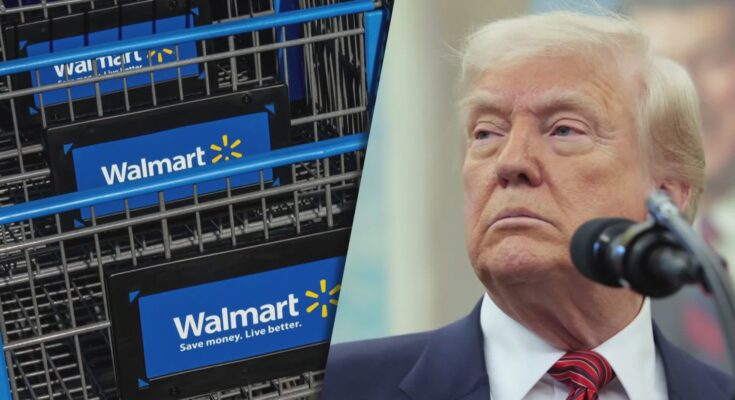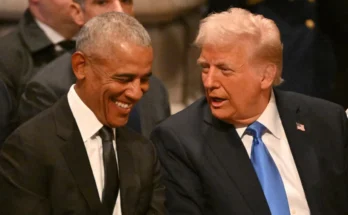Former President Donald Trump’s latest round of tariffs is no longer just political posturing—it’s starting to hit American consumers right where it hurts: their wallets.
While the bizarre inclusion of territories like the uninhabited Heard Island and McDonald Islands made headlines for its seemingly symbolic nature (they’re home only to penguins and seals), the real consequences of these broader tariff hikes are becoming painfully clear. Major companies across sectors are now warning that rising import costs will soon translate into higher prices on everyday goods.
Walmart Rings the Alarm
Retail giant Walmart, long praised for keeping prices low, has issued a blunt warning to shoppers.
CEO Doug McMillon stated the company is struggling to absorb the cost impact of Trump’s newly imposed tariffs.
“We will do our best to keep our prices as low as possible,” McMillon said, “but given the magnitude of the tariffs… we aren’t able to absorb all the pressure given the reality of narrow retail margins.”
This signals that even America’s most cost-conscious retailer is bracing for price increases, especially on imported goods.
Tech Startups Struggle With Tariff Shock
The pain isn’t limited to retail. Small tech companies and startups are being hit hard by unexpected and sky-high import fees.
-
Wyze Cam, a smart home tech firm based in Washington, tweeted that it was charged $255,000 in tariffs—plus $579 in fees—just to bring in $167,000 worth of goods.
-
GlytchTech revealed a DHL invoice showing $2,800 in tariffs on a shipment worth less than $2,000.
-
Adafruit Industries, a popular supplier of maker hardware, wrote a detailed blog post describing how they were hit with a staggering 125% + 20% + 25% import markup.
“Tariff taxes are paid before we sell any of the products and are due within a week of receipt,” Adafruit noted. “This has a big impact on cash flow.”
Worse yet, many of the affected components can’t be manufactured domestically due to intellectual property protections held by overseas vendors. So, the tariffs don’t just hurt—it’s nearly impossible for companies to avoid them.
What’s Next?
As more companies come forward, it’s becoming increasingly clear that Trump’s tariff policy is straining both large corporations and small innovators. And as importers are forced to pass costs onto consumers, price hikes at checkout may become the new normal.
With the 2024 election behind and 2025 already economically tense, these tariffs are shaping up to be a defining issue for businesses and American families alike.



